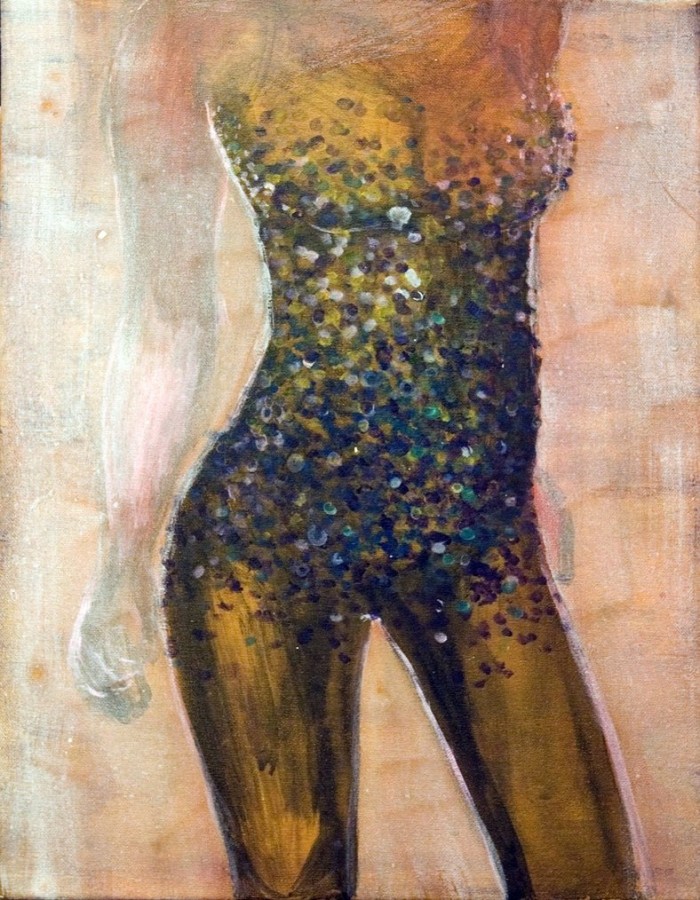“If ‘fat’ were a feeling, it would describe clearly enough the emotions that I have been experiencing the past few days. I can’t seem to find another label for whatever it is that is going on for me. I am not sure whether it is my belief that I am fat that is triggering the emotions or other unidentifiable situations that are triggering my emotions and that I am labelling as ‘fat’. I want to believe that ‘fat’ is a feeling. It is easier to stay on the surface and forget what’s going on beneath this. It is simpler to locate my bulging belly, the fat on my thighs, my ever-expanding body that always feels too much…”
~ Teenage self, age 14
This is for all our teenage girls, our future women of the world.
Disordered eating amongst adolescents is a growing problem. Estimates indicate that up to 5% of teenage girls will experience anorexia, bulimia, and/or subclinical variants of these.
Worryingly, eating disorders represent the highest mortality rate of all mental illnesses, either from medical complications associated with the disorder, or from suicide. While this represents the extreme end of the disordered eating continuum, there is an even greater number of young girls dieting, defining themselves by their weight on a scale, and desperately unhappy with their developing body.
I say, enough is enough.
It is time that we, as an older generation of women, start modeling an approach to health and wellbeing that focuses less on how we look and more on how we feel. It is time that we learn to find and use our voices, instead of allowing food and weight to communicate our deepest desires. And finally, it is time to drop the rope in this tug-of-war between fearing we are “too much,” yet not wanting to appear so small that we become invisible.
Dieting, culture, body image
Estimates indicate that up to 45% of teenage girls within Australia are dieting at any given point in time. Of concern is that for the majority of these girls, their weights fall within a normal weight range, indicating a desire for young girls to strive for body weights much lower than what would be considered optimal for health and development.
Adolescence is an important time for growth and development, particularly around one’s identity and sense of self. It would be hard for teenage girls to not be exposed to magazines portraying images of the “perfect” woman living the “perfect” life with her “perfect” body and “perfect” boyfriend. Research has shown that the more young girls read such magazines, the greater the internalisation of thin ideals and the greater their level of body dissatisfaction. As adults we learn that “perfect” doesn’t exist. However, for our young girls with fragile sense of selves, “perfect” is the goal for which to strive.
Whilst it would be nice if our society changed the messages that young girls are bombarded with, change actually begins with us—the women of the world. We cannot impart health and wellbeing on to our daughters if we ourselves are abstaining from nourishment. We cannot teach our daughters that they are enough, if we ourselves have not come to terms with our own imperfections. We cannot encourage our daughters to stand up and be counted as they are today if we are not able to see that who we are matters and is important.
For all our teenage girls, we will start with us.
Food as Language
Fat is not a feeling. It is nothing better than a line of best fit to a scattergram of dots that someone, somewhere might otherwise be able to identify as specific emotions. We know that those with disordered eating find it difficult to identify, label and communicate specific feelings, which is why “fat” becomes their main form of emotional language.
“Fat” shares a level of discomfort but is unable to communicate what we truly yearn for. We use “fat” to banish our anger, hide our shame, deny our sadness and avoid our fear. Yet in doing so, we fail to receive the compassion, empathy, relief and safety that might be elicited from going inward, identifying and sharing our emotions in all their vulnerability.
If feeling “fat” is feeling bad, then feeling better must be “thin.” However, herein lies the catch. Fat is not a feeling, and therefore thinness will never feel better—not for any length of time. Your emotional needs will continue to be unseen and unheard.
For all our teenage girls, believe that what you feel matters and deserves to be heard. Learn the art required to turn inward and label your feelings, and develop the courage to share these with those who need to hear it.
Becoming Enough
We live in an uncomfortable antagonism between “too much” and “too little.”
Fearing the sensation of too many emotions, too much success or being noticed, we starve ourselves of nourishment to establish some equilibrium. By restricting our food and losing weight, we gain a sense of containment—of emotions, of success, of our physical selves. Yet over time this brings with it the overwhelming fear of failure, emptiness and invisibility.
Unable to identify this emotional tug-of-war, we eat to fill this fear because if lack of food helped to get us here, surely eating will get us back out? So we eat. Lots. Quickly. Secretly. Heaven forbid we admit to our need for more. And for a moment, a brief, brief moment, we feel calm. That is, until the shame sets in; of needing something and being too much. So the cycle goes.
The lesson you learn along the way is that no amount (or lack) of food will ever win the battle between too much and too little. Food is not the problem; it is the distraction. Food is not the answer; it is the illusion. Time to drop the rope and face the fear that keeps us oscillating on the pendulum of enough-ness.
For all our teenage girls, the way you are today is enough. It is your right to feel a sense of love and belonging and this has nothing to do with how you look, and everything to do with who you are.
“…I felt no need to weigh myself this morning…Today, I don’t believe the scale defines who I am. I am me and that is that; no number can change the very essence of who I am. There is a substantial change in me. Before, I believed the very essence of who I was, was my weight. Today, I seem able to separate the two and that makes me feel alive…”
~ Teenage self, aged 14
Relephant read:
Inside Body Dysmorphia.
Your Body Ain’t Wrong, Girlfriend. {67 Untouched Nude Photos}
Author: Kristy Ross
Editor: Emily Bartran
Photo: Arwen Abenstern/flickr







Read 0 comments and reply